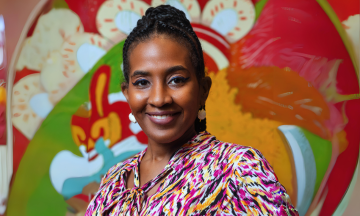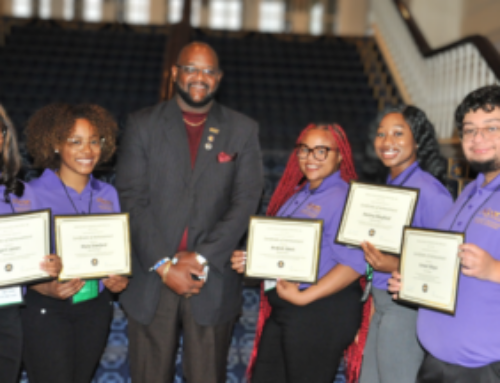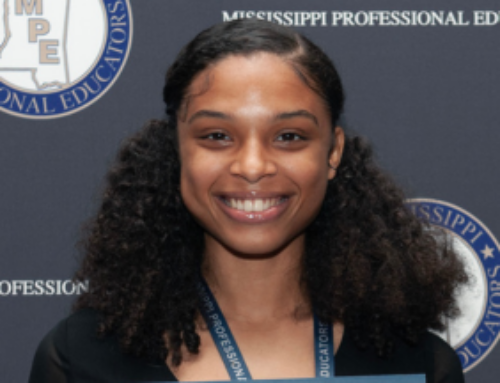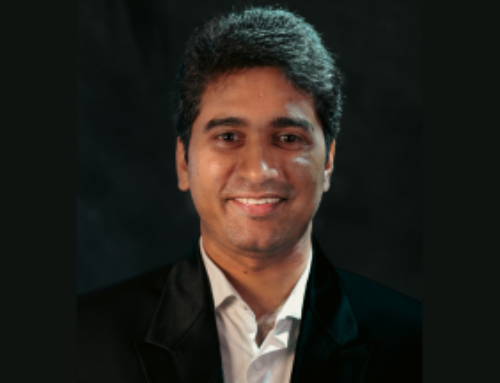Dr. Bianca Jackson, a coloratura soprano, will return to her alma mater, the University of Louisiana Monroe (ULM), to share her love and passion for music with students during a residency, Feb. 25-27.
The masterclass will be held on February 27 at 11:00 a.m.; the lecture-recital is scheduled for 7:30 p.m. in the Emy-Lou Biedenharn Recital Hall. The event is free and open to the public.
According to Central City Opera, a coloratura soprano sings high, light, and fast notes and has the highest voice of all sopranos and treble voices. It is considered to be a unique operatic voice.
The Natchez, Miss. native serves as Alcorn State’s voice coordinator and associate professor of music in the Department of Fine Arts. In her role, she has been charged with teaching undergraduate and graduate courses and coordinating the vocal performance program.
She expressed joy in her opportunity to go back to ULM.
“I’m excited and honored to be asked to return to my alma mater,” said Jackson. “I performed my first starring opera roles at ULM, and that was the last time my late grandmother saw me on stage. I also sang with an orchestra for the first time there. It will be a different feeling to be there now as a professor. It feels like my life has come full circle, in the best of ways.”
Following in her mother’s footsteps, she pursued her love of singing. Jackson’s musical influences span the breadth of the many genres available today.
“My mother is my greatest musical influence; I grew up watching her sing throughout Natchez and on tour,” said Jackson. I’m greatly influenced by folk song, spirituals, and classical music. I admire the composer William Grant Still and have studied him for almost twenty years. I’m definitely a child of Mississippi, so gospel and blues singers are near to me.”
She continued, “I listen to music of the world. It’s tough to narrow it down because I love so many genres, from classical to K-pop.”
Jackson considers music as a calling and a form of communication.
“I have a deep connection to sharing music with others,” said Jackson. “I can communicate best through song. I especially enjoy learning more about my culture, as well as diverse music. I love to learn and teach. Music pushes me to excel in many different ways, like singing in foreign languages and performing. Music takes me to a very special place.”
Through her passion, she believes in giving back and sharing her gift with students and others.
“I truly believe that we receive when we give, so professors, giving back is of the utmost importance,” she said. “Students need to know that we were once in their shoes, and they will one day be in ours. You never know what or who will change a person’s life. Even small gestures can make an impact. It’s important to invest in others.”
During her Masterclass and Lecture-Recital, she hopes students will gain knowledge to take ownership of their identities as artists.
“I want students to feel the power of classical music by Black American composers and realize that they are in control of who they are as artists by making meaningful music decisions and taking creative risks,” said Jackson. “These composers have overcome great odds to share their music. I hope students will see in my work with them that music is a reflection of their history, story, and culture. Music is very powerful and as musicians we hold and distribute that power to our audiences.”
Jackson earned her bachelor’s degree from Tougaloo College and a Master of Music degree from ULM. She received a Doctor of Musical Arts in vocal performance from The University of Texas at Austin. In addition, Jackson was the first graduate music student with portfolio certification in African and African American Studies.
Her portfolio certification enhanced her doctoral studies by allowing her to focus on Black history, art, and culture.
“I presented a lecture-recital on Black cultural trauma and opera, which was part of my portfolio project,” said Jackson. “I took several graduate courses concerning the African Diaspora. It exposed me to brilliant professors and gave my research socially conscious direction. It allowed me to frame my music study with an Afro-centric perspective, and that has set the foundation for my music research and performances thus far.”




